
1782 (MDCCLXXXII) was a common year starting on Tuesday of the Gregorian calendar and a common year starting on Saturday of the Julian calendar, the 1782nd year of the Common Era (CE) and Anno Domini (AD) designations, the 782nd year of the 2nd millennium, the 82nd year of the 18th century, and the 3rd year of the 1780s decade. As of the start of 1782, the Gregorian calendar was 11 days ahead of the Julian calendar, which remained in localized use until 1923.

Sir Hugh Allan was a Scottish-Canadian shipping magnate, financier and capitalist. By the time of his death, the Allan Shipping Line had become the largest privately owned shipping empire in the world. He was responsible for transporting millions of British immigrants to Canada, and the businesses that he established from Montreal filtered across every sphere of Canadian life, cementing his reputation as an empire builder. His home, Ravenscrag, was the principal residence of the Golden Square Mile in Montreal.
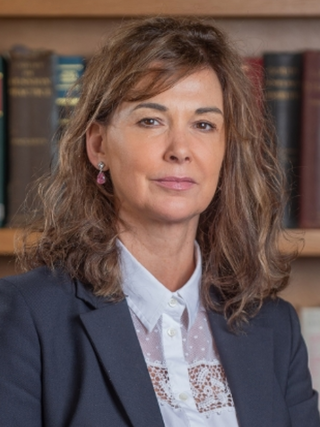
His Majesty's Advocate, known as the Lord Advocate, is the principal legal adviser of both the Scottish Government and the Crown in Scotland for civil and criminal matters that fall within the devolved powers of the Scottish Parliament. The Lord Advocate provides legal advice to the government on its responsibilities, policies, legislation and advising on the legal implications of any proposals brought forward by the government. The Lord Advocate is responsible for all legal advice which is given to the Scottish Government.
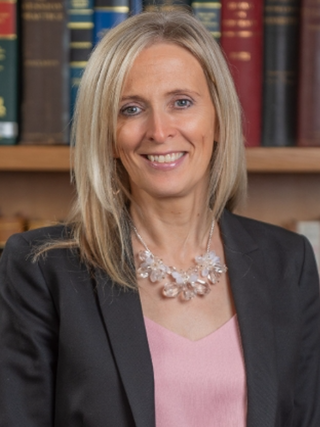
His Majesty's Solicitor General for Scotland is one of the Law Officers of the Crown, and the deputy of the Lord Advocate, whose duty is to advise the Scottish Government on Scots Law. They are also responsible for the Crown Office and Procurator Fiscal Service which together constitute the Criminal Prosecution Service in Scotland.
In the United Kingdom, the Judge Advocate General is a judge responsible for the Court Martial process within the Royal Navy, British Army and Royal Air Force. As such the post has existed since 2006; prior to this date the Judge Advocate General's authority related to the Army and the RAF while the Judge Advocate of the Fleet was the equivalent with regard to the Royal Navy.

The Solicitor-General for Ireland was the holder of an Irish and then United Kingdom government office. The holder was a deputy to the Attorney-General for Ireland, and advised the Crown on Irish legal matters. On rare occasions, there was also a Deputy Attorney-General, who was distinct from the Solicitor-General. At least two holders of the office, Patrick Barnewall (1534–1550) and Sir Roger Wilbraham (1586–1603), played a leading role in Government, although in Barnewall's case, this may be partly because he, was also King's Serjeant. As with the Solicitor General for England and Wales, the Solicitor-General for Ireland was usually a barrister rather than a solicitor.

Sir Travers Twiss QC FRS was an English jurist. He had a distinguished academic and legal career culminating in his appointment as Queen's Advocate-General. Twiss was particularly noted for his contribution to the theory of international law. He was widely consulted, and was asked to draw up the constitution of the Congo Free State. A prolific author, Twiss wrote many influential textbooks on legal matters.

Sir Robert Joseph Phillimore, 1st Baronet, was an English judge and politician. He was the last Judge of the High Court of Admiralty from 1867 to 1875 bringing an end to an office that had lasted nearly 400 years.

Francis Henry Jeune, 1st Baron St Helier,, known as Sir Francis Jeune (1891–1905), was a British judge. He was President of the Probate, Divorce and Admiralty Division of the High Court of Justice (1892–1905) and Judge Advocate General (1892–1905). According to, F. L. Wiswall Jr., "For better or for worse, it is fair to say that Sir Francis Henry Jeune had a greater influence upon the development of the Law of Admiralty than any single common lawyer since Coke."

Sir John Dodson was an English judge, aka Dean of Arches, and member of parliament.

Sir Herbert Jenner-Fust, was an English judge and Dean of the Arches.
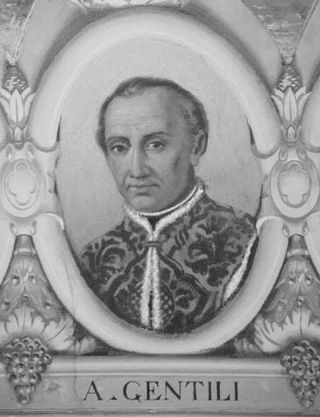
The Regius Chair of Civil Law, founded in the 1540s, is one of the oldest professorships at the University of Oxford.

The Admiralty Advocate was one of the Law Officers of the Crown. He represented the Crown in the High Court of Admiralty from 1661 to 1867. He was also known as the Advocate for the Affairs of the Admiralty.
Sir Thomas Dickson Archibald (1817–1876) was judge of the High Court of Justice and lawyer from Nova Scotia. He served from 6 February 1875 until 1 November 1875.
The High Sheriff of Kerry was the British Crown's judicial representative in County Kerry, Ireland from the 16th century until 1922, when the office was abolished in the new Free State and replaced by the office of Kerry County Sheriff. The sheriff had judicial, electoral, ceremonial and administrative functions and executed High Court Writs. In 1908, an Order in Council made the Lord-Lieutenant the Sovereign's prime representative in a county and reduced the High Sheriff's precedence. However, the sheriff retained his responsibilities for the preservation of law and order in the county. The usual procedure for appointing the sheriff from 1660 onwards was that three persons were nominated at the beginning of each year from the county and the Lord Lieutenant then appointed his choice as High Sheriff for the remainder of the year. Often the other nominees were appointed as under-sheriffs. Sometimes a sheriff did not fulfil his entire term through death or other event and another sheriff was then appointed for the remainder of the year. The dates given hereunder are the dates of appointment. All addresses are in County Kerry unless stated otherwise.
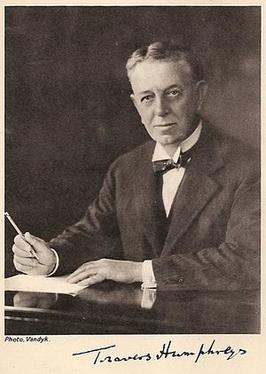
Sir Richard Somers Travers Christmas Humphreys was a noted British barrister and judge who, during a sixty-year legal career, was involved in the cases of Oscar Wilde and the murderers Hawley Harvey Crippen, George Joseph Smith and John George Haigh, the 'Acid Bath Murderer', among many others.
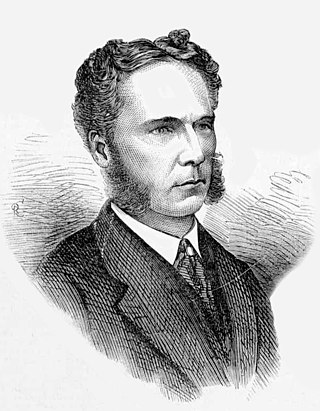
Sir Joseph George Long Innes, was a judge and politician in colonial Australia, and Attorney General of New South Wales from 1873 to 1875.
Sir James Parker Deane (1812–1902) was an English judge. With Thomas Hutchinson Tristram he was the last of the civilians—the civil lawyers with a training from Doctors' Commons, as described in David Copperfield by Charles Dickens.













